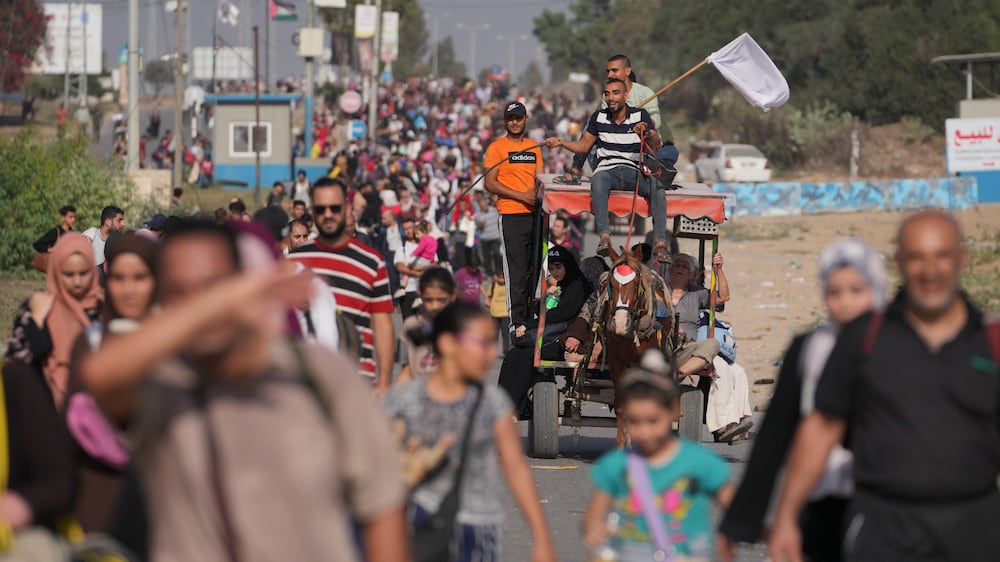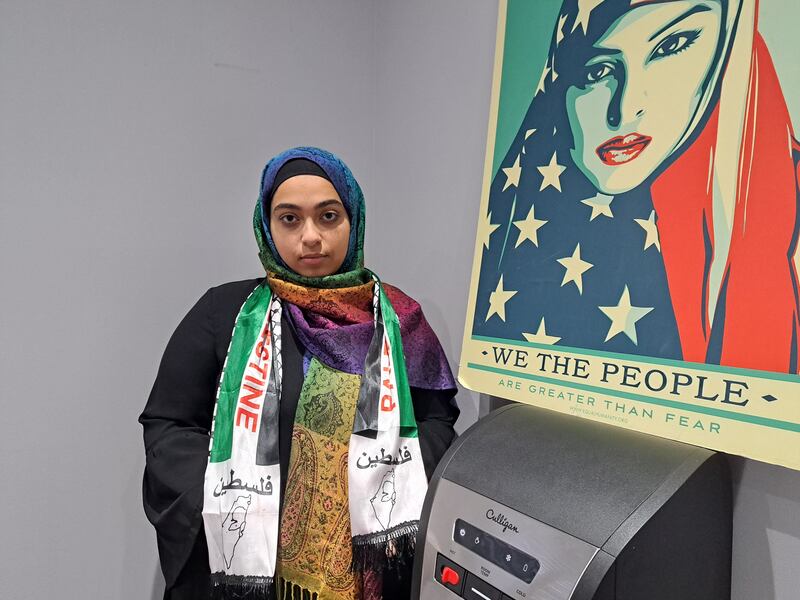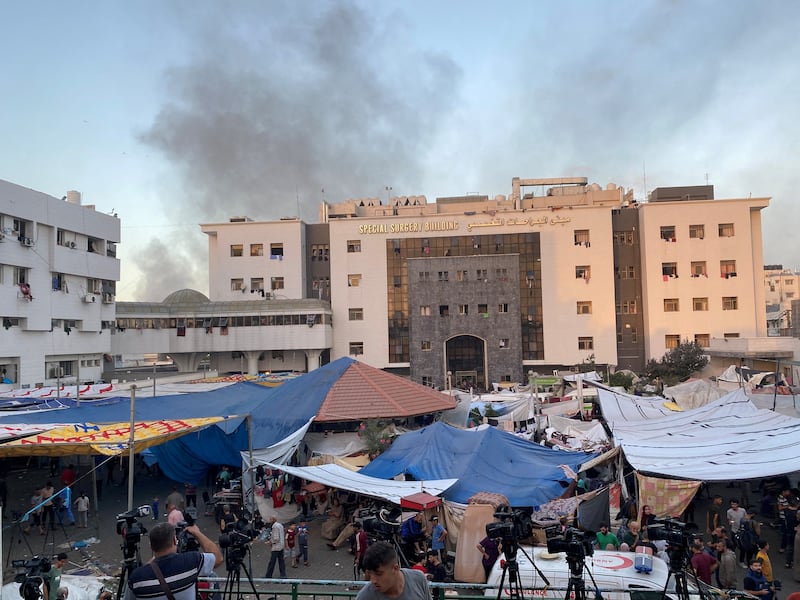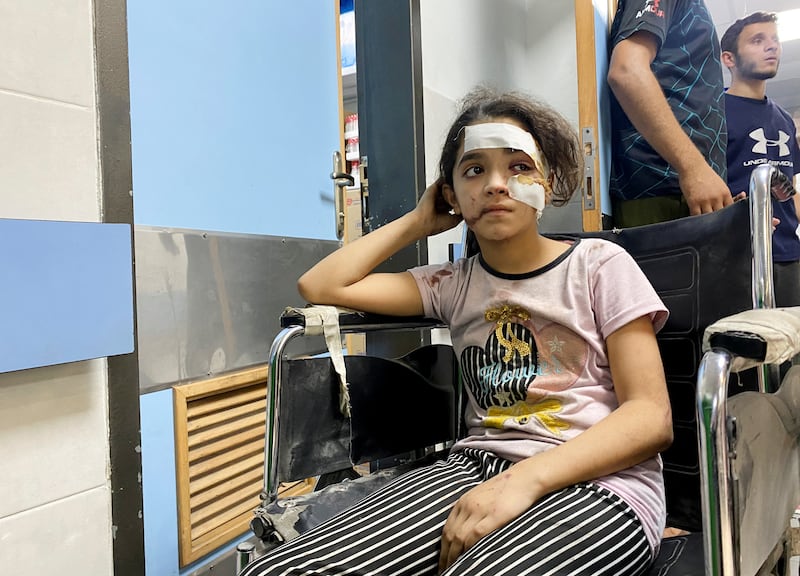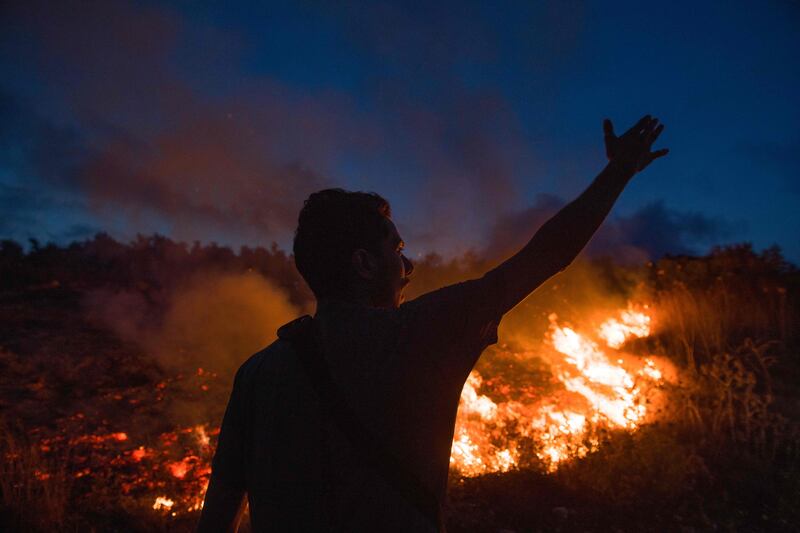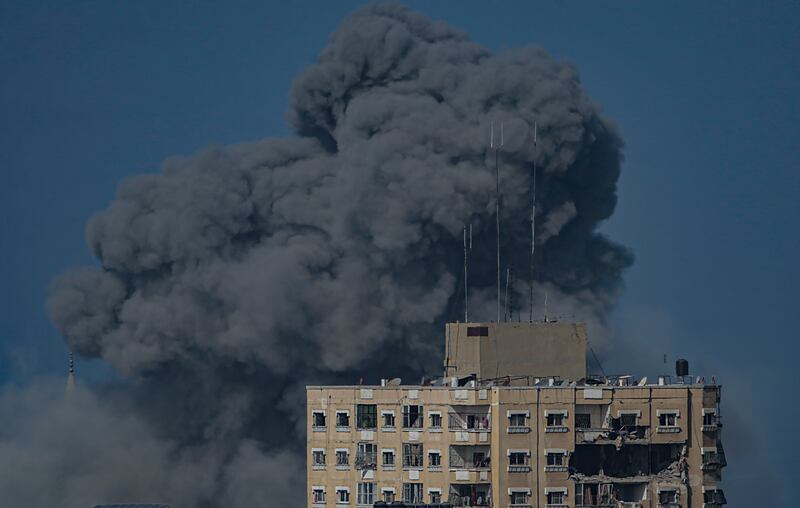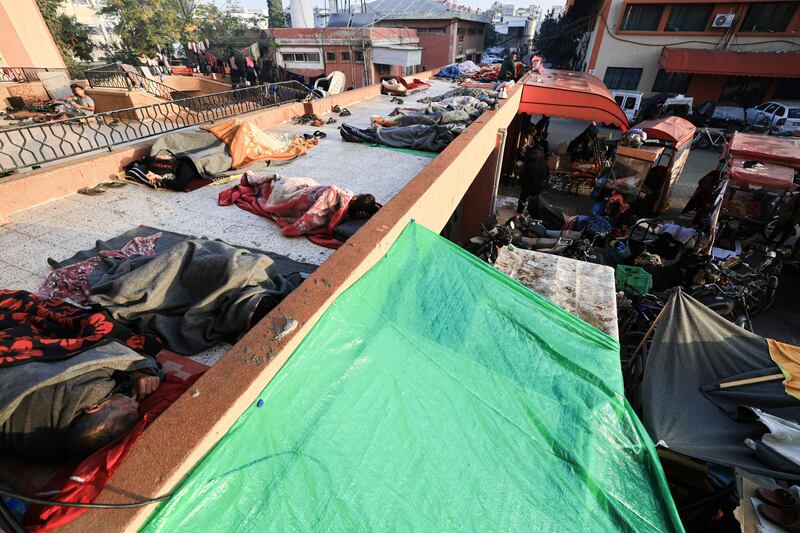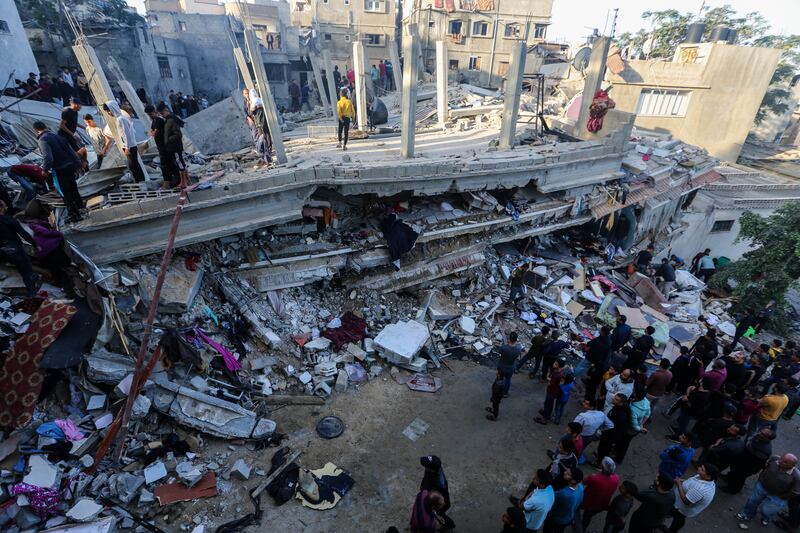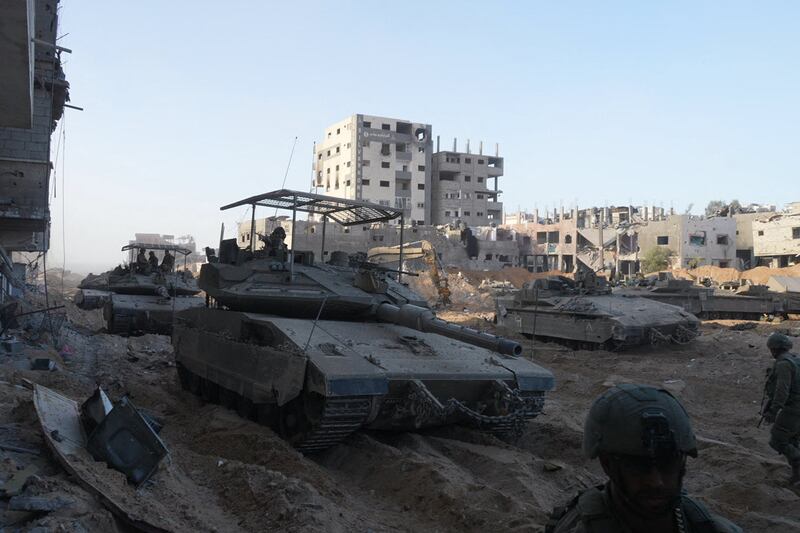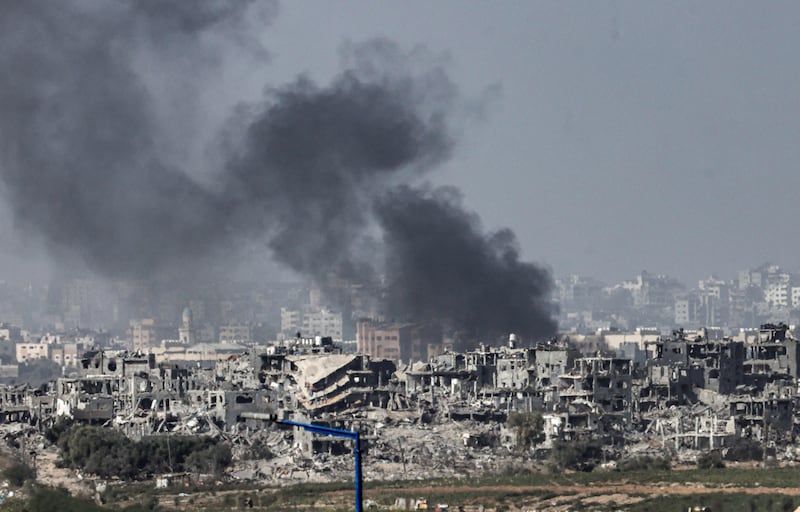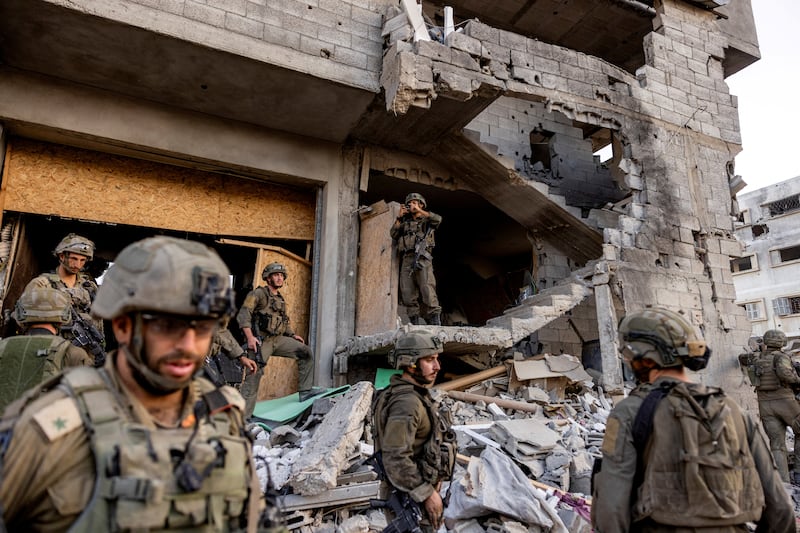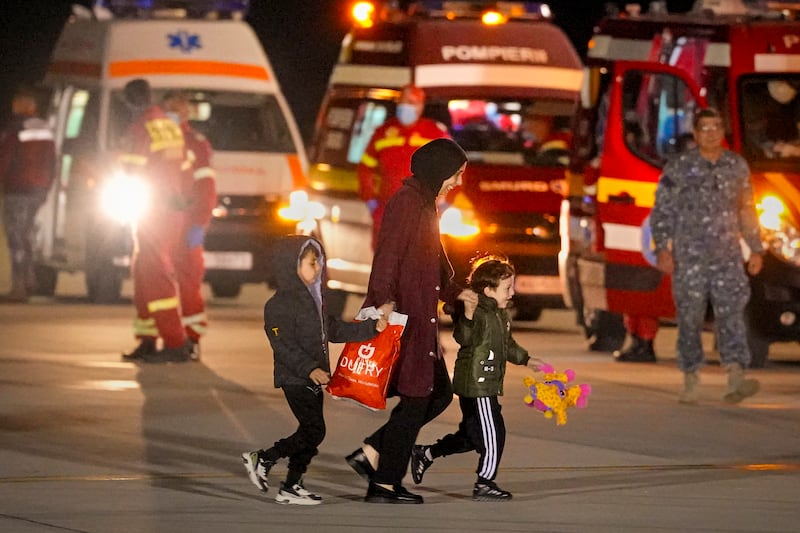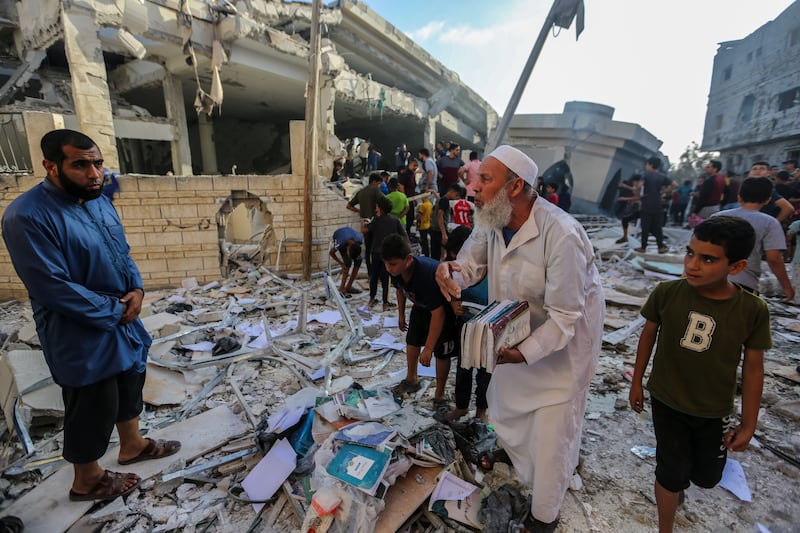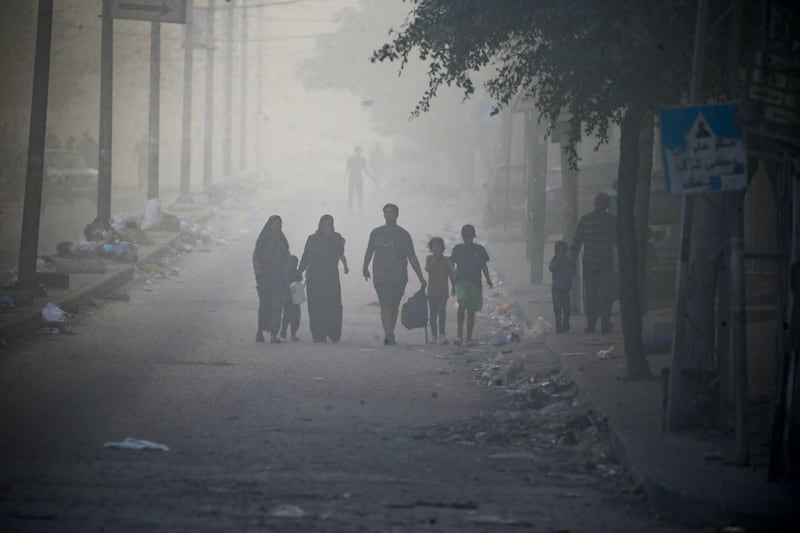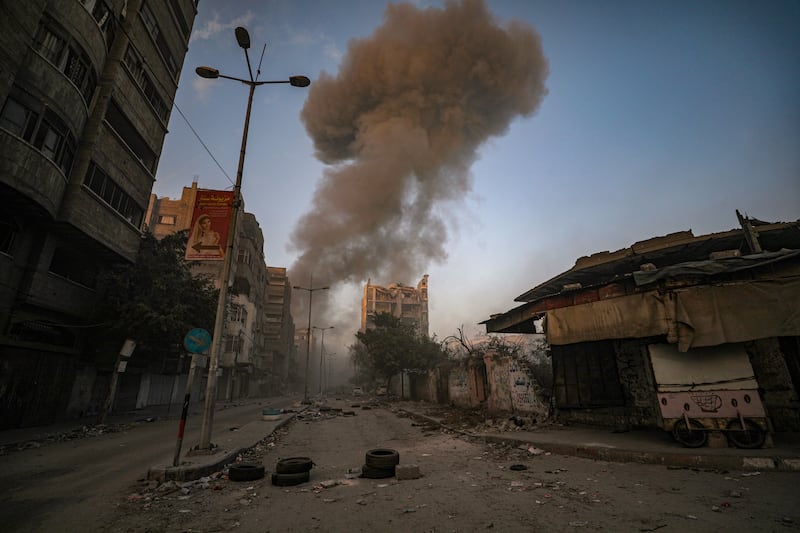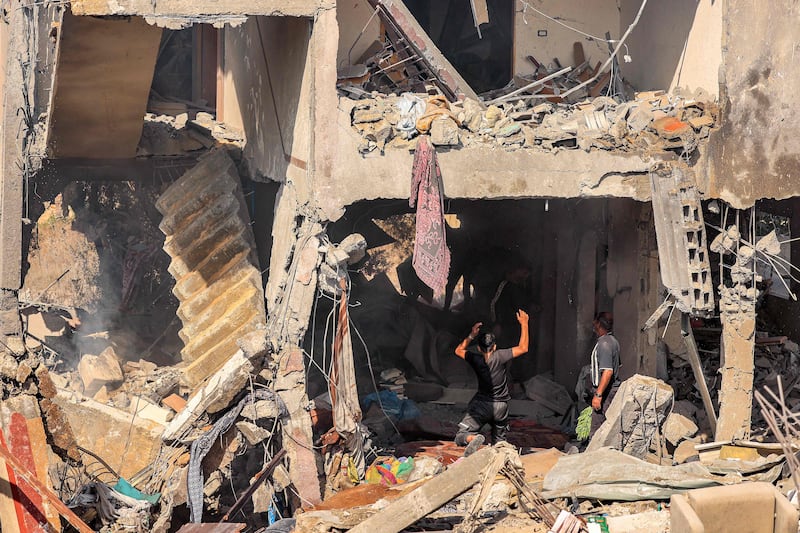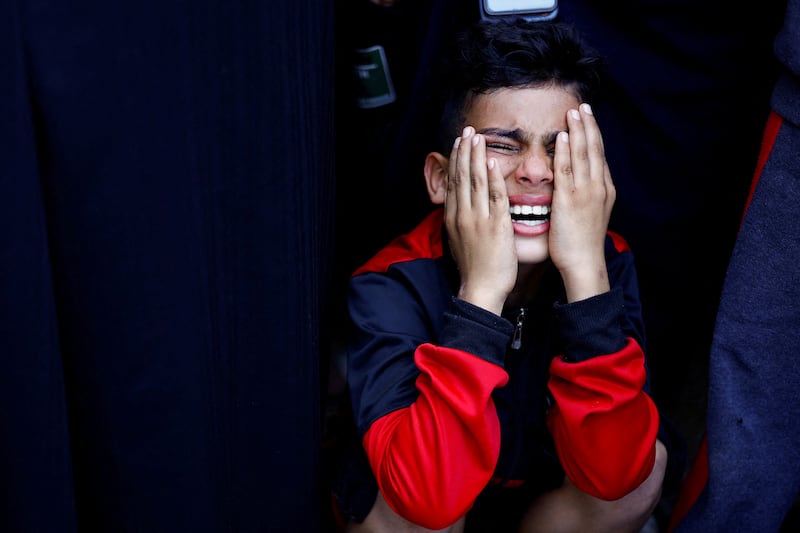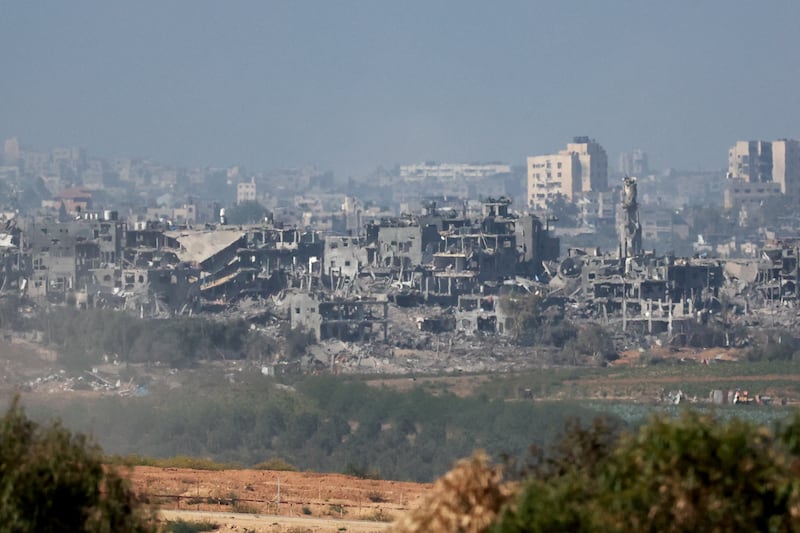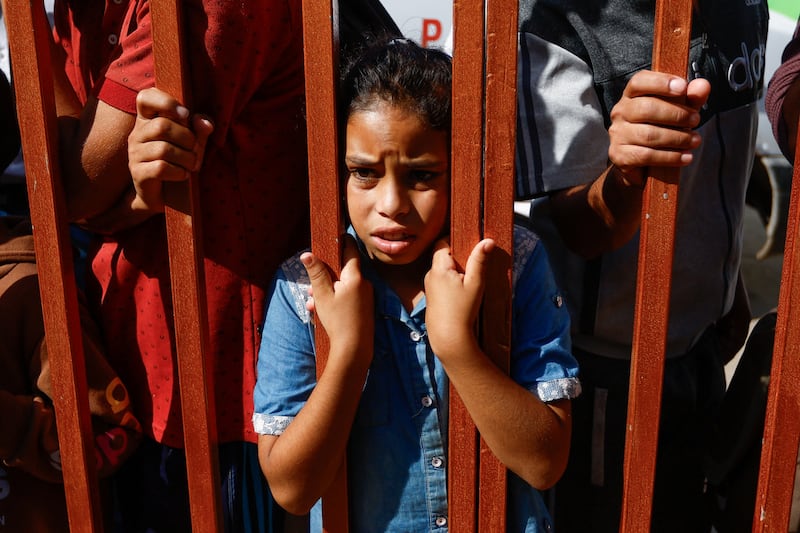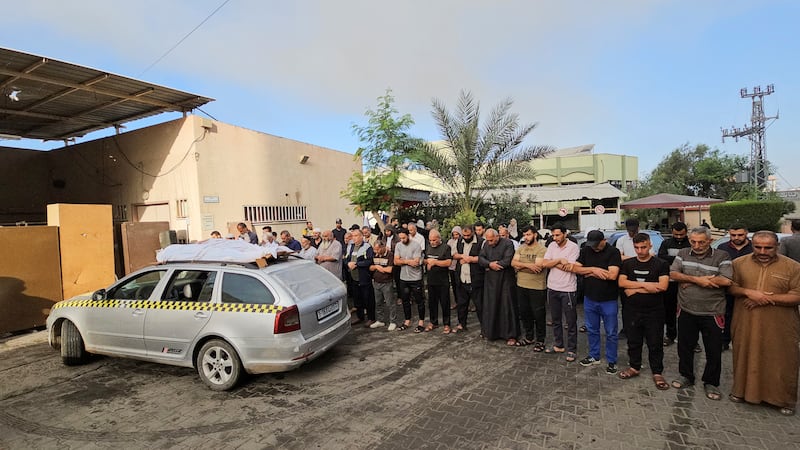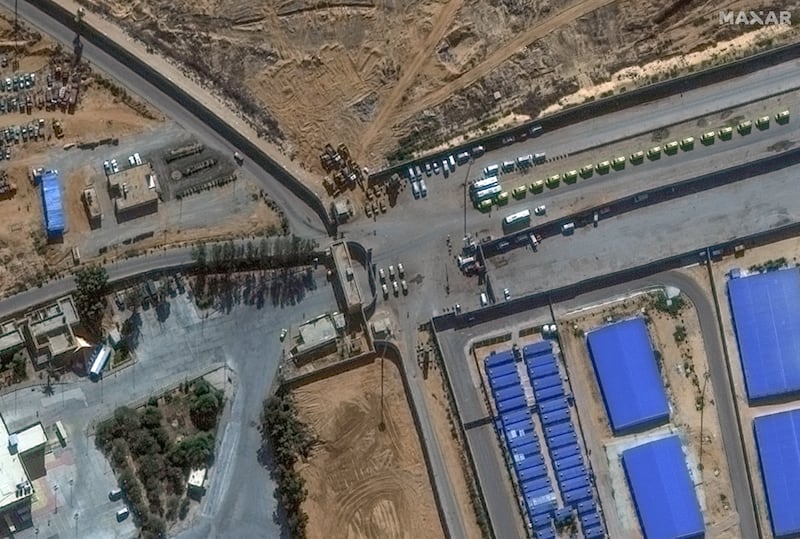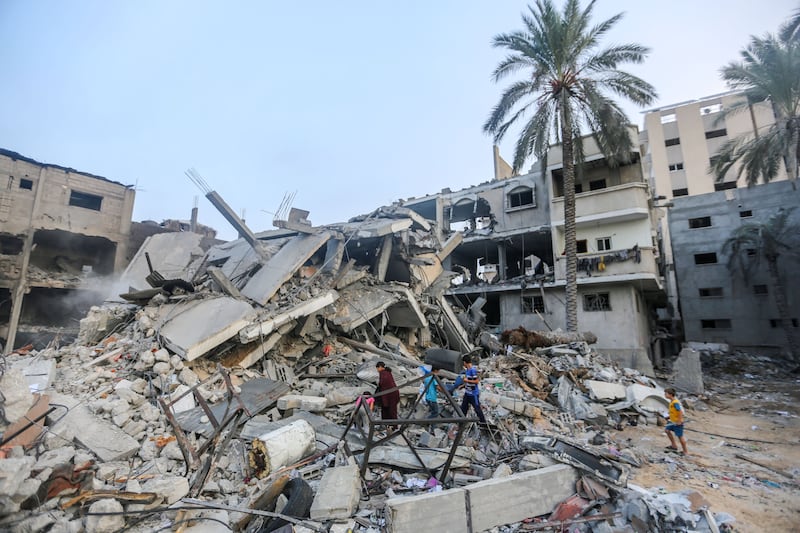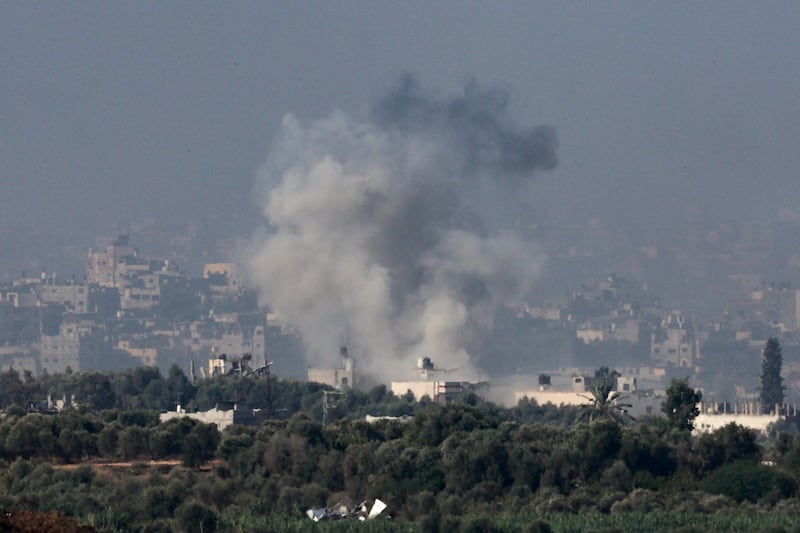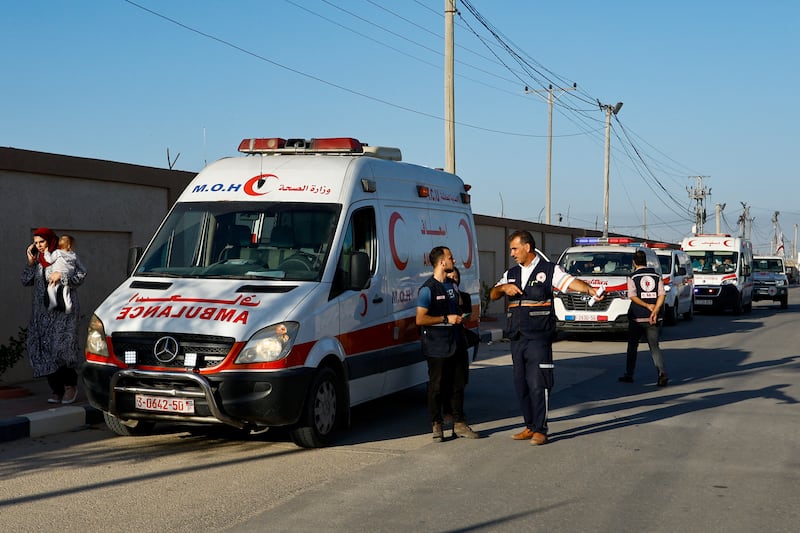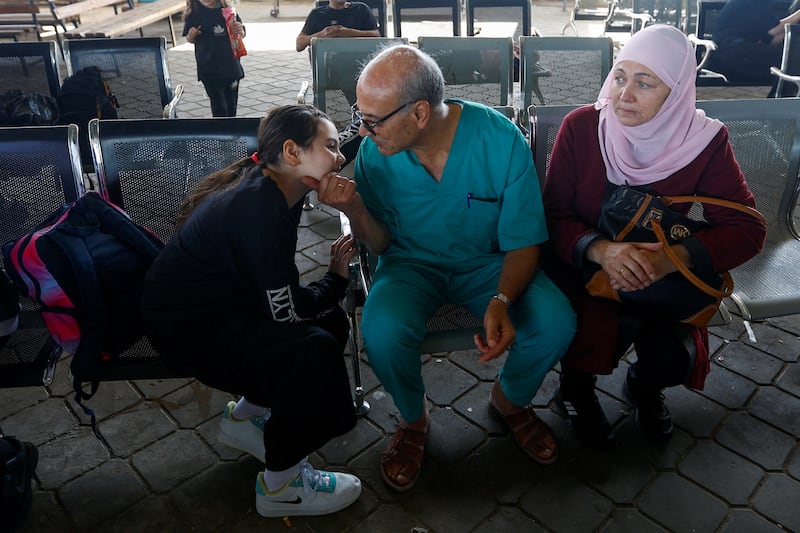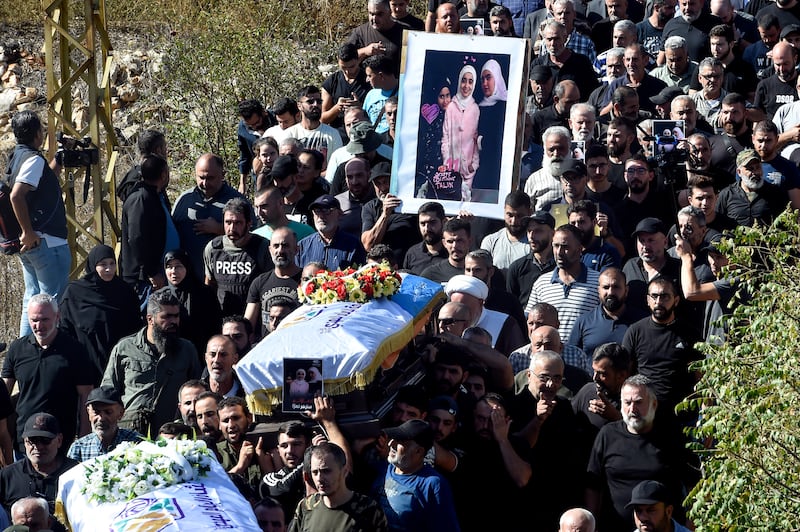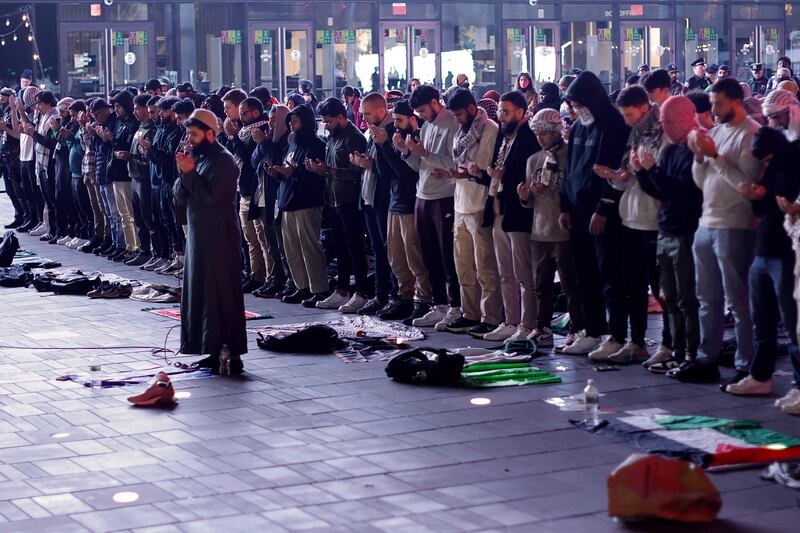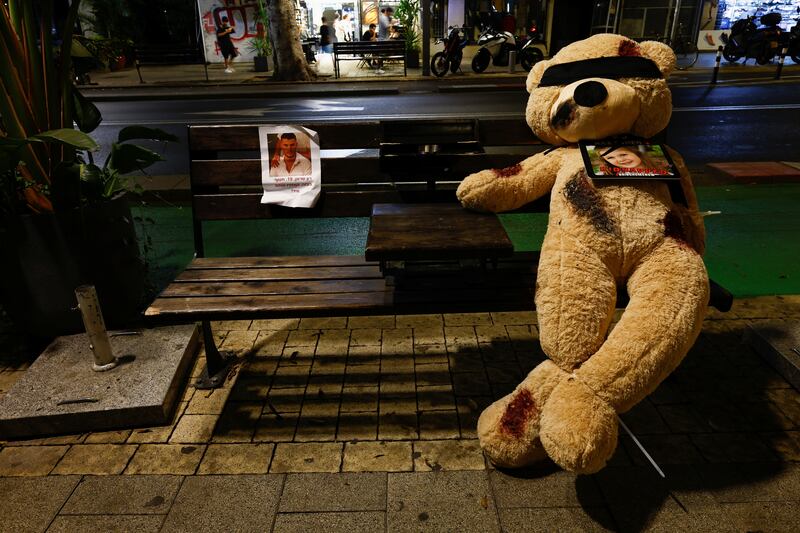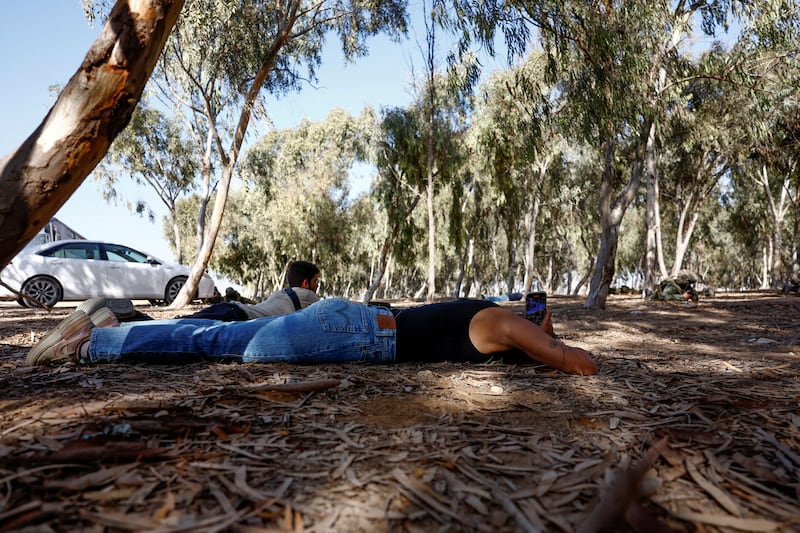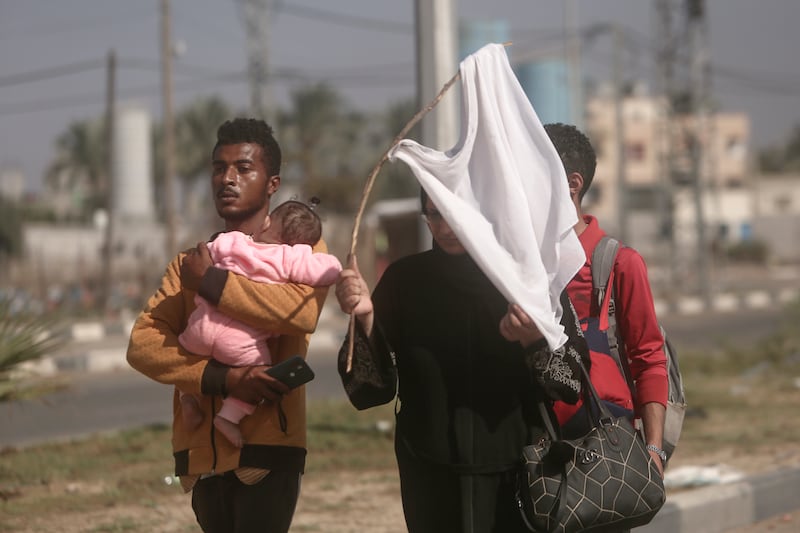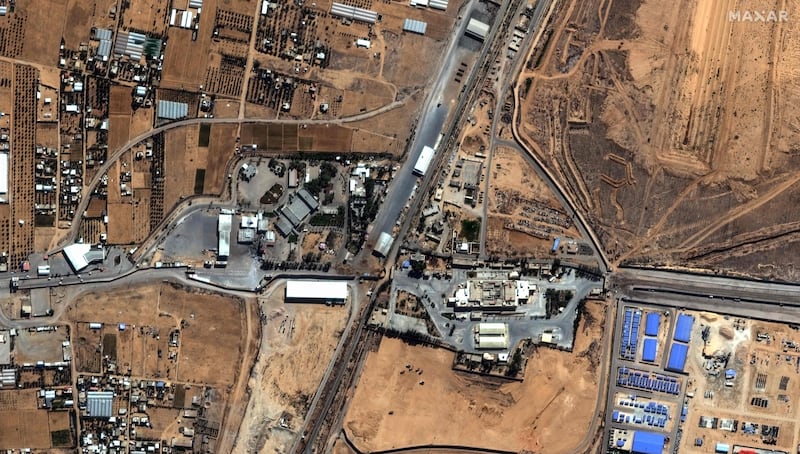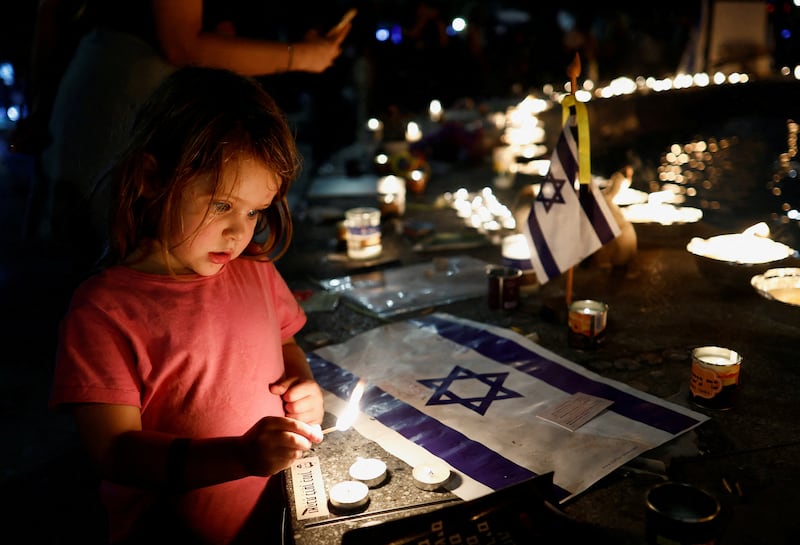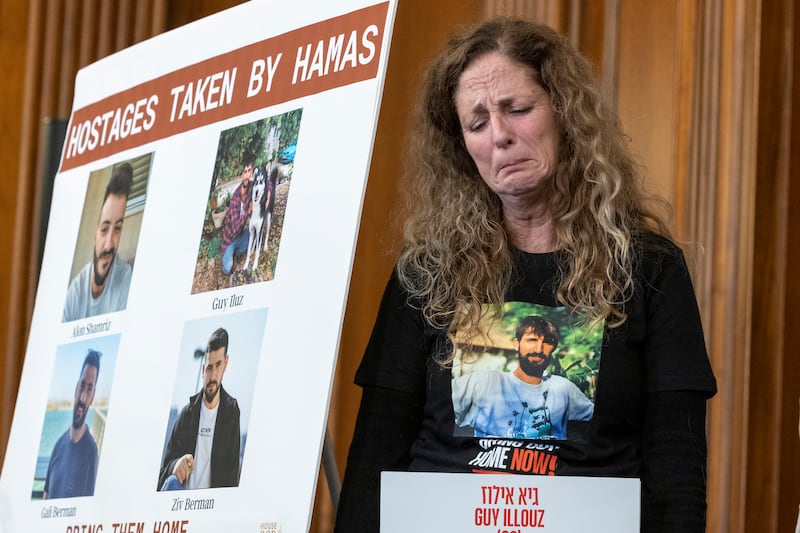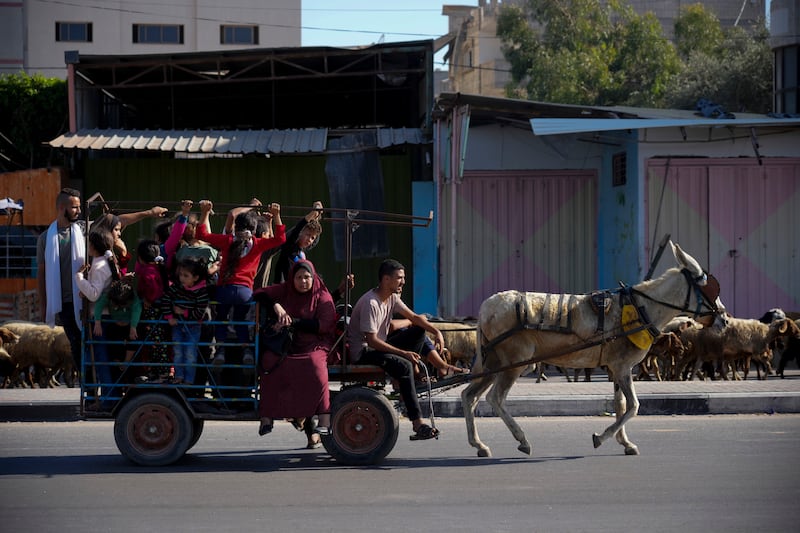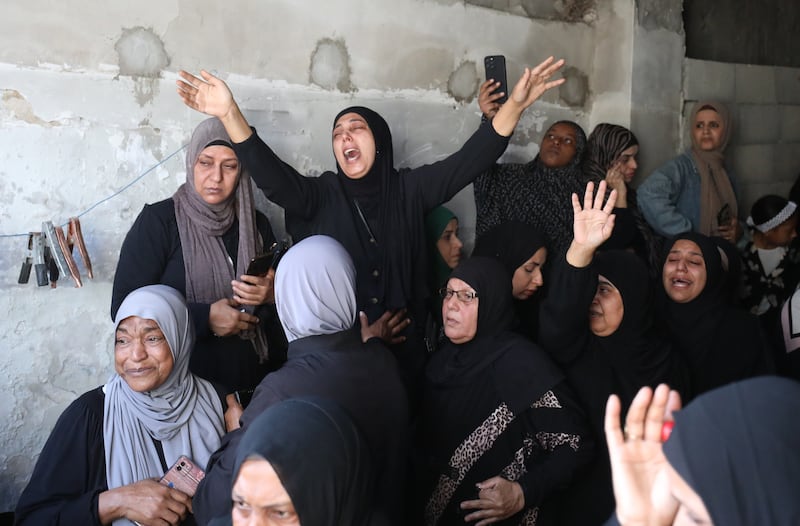Live updates: Follow the latest news on Israel-Gaza
When Laila Shaikh got word last week that she had received a letter at the local Islamic centre outside Cincinnati, she didn’t think much of it.
“I told them to go ahead and open it; I had class the next day so couldn’t come by and get it myself,” the 19-year-old student said.
Ms Shaikh is the founder of the University of Cincinnati chapter of Students for Justice in Palestine, a nationwide college-based organisation.
The letter, which was handwritten, read: “Go back to Gaza you [expletive] Muslim [expletive]. We don’t want you here.” It was handed over to the police and a report was made.
She also believes her phone has been hacked and that someone has been sending recorded messages in Hebrew to her 13-year-old sister.
“It has been getting very unsafe for me personally,” she said.
“I’m a 19-year-old in Cincinnati speaking out. I haven’t been doing anything crazy.”
The Israel-Gaza war has fuelled and politicised Arab Americans such as Ms Shaikh to a level not seen for generations, with students leading the charge.
For the past month, young Arab Americans have been taking to the streets to vent their anger at the devastation and their own government’s response to the bombing of Gaza.
Across the country, students are threatening class walkouts when universities fail to meet their demands to issue statements condemning Israel’s attacks on Gaza.
Meanwhile, Jewish students have experienced rising anti-Semitism, with swastikas appearing on the door of a student dorm at American University in Washington last month.
In mid-October, Ms Shaikh, who grew up in Chicago and whose family comes from the occupied West Bank, organised a rally in Cincinnati that drew hundreds of people.
“I need to speak out, I need to advocate especially because our history has been taken away from us,” she said.
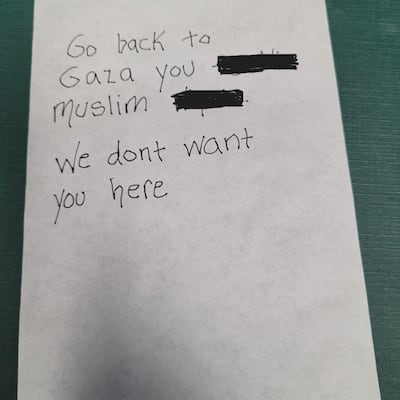
“As a Palestinian who has had the privilege of not living [in Gaza] and not being bombarded, if I do choose to speak out and to be a voice for the voiceless, I understand there will be repercussions.”
Since Israel’s bombardment of Gaza began, some Muslim groups in the US have had to hire security to protect people attending organised gatherings.
“[We have responded to] over 260 and counting incidents of suppression of Palestinian rights advocacy we have responded to in the last two weeks,” said Danya Zituni of Palestine Legal, a US-based non-profit.
“The scale is unprecedented; this is more than the number of incidents we addressed in all of last year.”
On October 24, Florida Governor Ron DeSantis ordered the shutting down of Students for Justice in Palestine in the state for being “anti-Israeli”.
Free speech advocates across the political divide are aghast, fearing what it could mean for the country as a whole if Mr DeSantis were to become president following next year’s election.
“There’s no indication from the chancellor’s letter that any action from Florida’s Students for Justice in Palestine groups went beyond expression fully protected by the First Amendment,” said a statement from the Foundation for Individual Rights and Expression, an advocacy group that defends free speech on university campuses.
“This directive is a dangerous – and unconstitutional – threat to free speech. If it goes unchallenged, no one’s political beliefs will be safe from government suppression.”
Arab-American students say they have been moved to action not only by seeing the devastation in Gaza play out on social media and TV, but by the responses of leading US politicians such as Senator Lindsay Graham who last month said: “Gaza is going to look like Tokyo and Berlin at the end of World War II when this is over. And if it doesn't look that way, Israel made a mistake.”
Israel-Gaza war latest – in pictures
To counter this narrative, student activists have attempted to highlight the history and context of the Arab-Israeli conflict for Americans who may not be familiar with what has transpired over the past 70 years. But some of these efforts have been thwarted.
An event the University of Cincinnati chapter of the Students for Justice in Palestine had planned to hold to talk about the effects of Zionism was cancelled following opposition from a host of local groups and a news report in the local media that claimed the meeting equated to anti-Semitism.
“We were told that this could be interpreted as hate speech and that we could lose our funding if it went ahead,” said Ms Shaikh. “I just don’t understand why there’s not common knowledge that Zionism is not Judaism.”
Former president Donald Trump’s so-called “Muslim ban” in 2017 led Arab Americans to seek and win political office as members of the Democratic Party in local, state and national races across the country in 2020.
But President Joe Biden’s stance on Israel’s attacks on Gaza the conflict has seen his popularity sink among Muslim and Arab Americans. This could boost the profile of activists such as Ms Shaikh, who represent a disillusionment with mainstream politics in America.
For her, among the problems she and other Palestinian Americans face is the narrative that speaking out for Palestinian rights is associated with Hamas’s actions.
“We are a student organisation in Cincinnati, they are a political faction in Gaza … I’ve never been out of the country,” she said. “I don’t even own a passport.”
Instead, one role the Students for Justice in Palestine group is finding itself involved in is helping friends dealing with loss. Ms Shaikh said a member of the organisation’s board has lost 40 members of his family to Israeli air strikes.
“Part of what we’re trying to do is just comfort people who have lost family members,” Ms Shaikh explained.
Gazans flee north on foot as Israeli attacks continue – video
Gazans flee north on foot as Israeli attacks continue
